“Yes, Virginia, There is a Santa Claus” – Season’s Greetings from Richard Bell
There is no better way to capture the essence of the true meaning of the holiday season than through this immortal letter to the editor of the New York Sun and its response editorial on September 21, 1897 by Francis P. Church entitled “YES, VIRGINIA, THERE IS A SANTA CLAUS“:
“DEAR EDITOR: I am 8 years old.
Some of my little friends say there is no Santa Claus.
Papa says, ‘If you see it in THE SUN it’s so.’
Please tell me the truth; is there a Santa Claus?
VIRGINIA O’HANLON.
115 WEST NINETY-FIFTH STREET.
VIRGINIA, your little friends are wrong. They have been affected by the skepticism of a skeptical age. They do not believe except they see. They think that nothing can be which is not comprehensible by their little minds. All minds, Virginia, whether they be men’s or children’s, are little. In this great universe of ours man is a mere insect, an ant, in his intellect, as compared with the boundless world about him, as measured by the intelligence capable of grasping the whole of truth and knowledge.
Yes, VIRGINIA, there is a Santa Claus. He exists as certainly as love and generosity and devotion exist, and you know that they abound and give to your life its highest beauty and joy. Alas! how dreary would be the world if there were no Santa Claus. It would be as dreary as if there were no VIRGINIAS. There would be no childlike faith then, no poetry, no romance to make tolerable this existence. We should have no enjoyment, except in sense and sight. The eternal light with which childhood fills the world would be extinguished.
Not believe in Santa Claus! You might as well not believe in fairies! You might get your papa to hire men to watch in all the chimneys on Christmas Eve to catch Santa Claus, but even if they did not see Santa Claus coming down, what would that prove? Nobody sees Santa Claus, but that is no sign that there is no Santa Claus. The most real things in the world are those that neither children nor men can see. Did you ever see fairies dancing on the lawn? Of course not, but that’s no proof that they are not there. Nobody can conceive or imagine all the wonders there are unseen and unseeable in the world.
You may tear apart the baby’s rattle and see what makes the noise inside, but there is a veil covering the unseen world which not the strongest man, nor even the united strength of all the strongest men that ever lived, could tear apart. Only faith, fancy, poetry, love, romance, can push aside that curtain and view and picture the supernal beauty and glory beyond. Is it all real? Ah, VIRGINIA, in all this world there is nothing else real and abiding.
No Santa Claus! Thank God! he lives, and he lives forever. A thousand years from now, Virginia, nay, ten times ten thousand years from now, he will continue to make glad the heart of childhood.”
Season’s greetings and may you have a healthy, happy, and prosperous New Year. Stay safe. Be well.
A Responsible Corporation That Gets The Importance of Voting
Before the Senate killed the passage of voting rights legislation last year, a group of companies and business organizations sent a letter to Congress urging the passage of voter protection legislation to fight against voter discrimination and unfair barriers to voting. One of those corporations was Chicory Wealth, a holistic financial life planning company offering services to individuals and nonprofit organizations across the nation.
I was not familiar with Chicory Wealth before seeing its name as a signatory to the voting rights letter to Congress, but I now understand its firm commitment to protect everyone’s right to vote in our democracy.
In its effort to make its clients aware of the importance of voting, Chicory Wealth included an article in its February 10, 2022 online newsletter entitled “The Importance of Voting: Your Go-To Resources”. I am very proud that my free YouTube series, Voting For Beginners™, was a recommended resource in Chicory Wealth’s newsletter article which described my site “as a primer for young and not so young voters on how to properly register, cast a ballot and have your vote counted”.
I want to sincerely thank the management of Chicory Wealth for including Voting For Beginners™ in its newsletter and thank it for being a responsible, caring and model corporate citizen. We need more corporations who go beyond the bottom line to take an active role in preserving and nourishing our democracy.
Bronx Jury Rules Against Celebrity
My client was driving from his home in the Bronx along the West Side Highway in Manhattan with his wife in the front seat and their two children in the back. He was proceeding straight when a former NFL player and present sports radio personality decided to cut into his lane pushing my client’s car toward the barrier and causing him to lose control of his vehicle. The other driver’s celebrity did not exempt him from being judged like any other driver in a court of law by a jury in the Bronx.
Before trial, a judge had already decided that the other driver was 100% negligent. My client and his wife had both suffered serious neck (and back) injuries resulting in risky spinal surgeries and permanent physical injuries to these two young parents in their 30’s. The insurance company for the celebrity’s car claimed my client and his wife (she was represented by a colleague of mine) were exaggerating their injuries (despite undergoing spinal fusion surgeries) and offered very little money to settle before verdict. We went to trial before a jury in the Bronx.
It turned out that the key to the trial was my cross-examinations of the other driver’s medical expert and engineering expert. They both claimed that the accident did not cause serious injuries and could not have happened the way my client claimed it did. I had done extensive research on these “experts” and even found prior court transcripts wherein one of them had testified under oath to relevant matters which raised questions of his credibility.
They came off as biased witnesses who basically came to court as a major part of their incomes and almost always for the parties being sued (i.e., the insurance company paid for the defense experts as is the standard). My extensive preparation paid off. The jurors saw what was going on and at multiple points even laughed and smirked at the alleged “experts’ ” testimony. This, of course, bolstered my argument in summation that my client’s medical testimony and the live testimony offered by his surgeon about his pain and suffering and permanent limitations at trial were true.
The jury came back with a very substantial money verdict in favor of my client and his wife. Justice was served. The jurors in the Bronx were not fooled. They got it right as they usually do. That’s the beauty of the jury system. Real people from the community get to make the final decisions.
Voter Education is the Way Out of America’s Voting Rights Mess
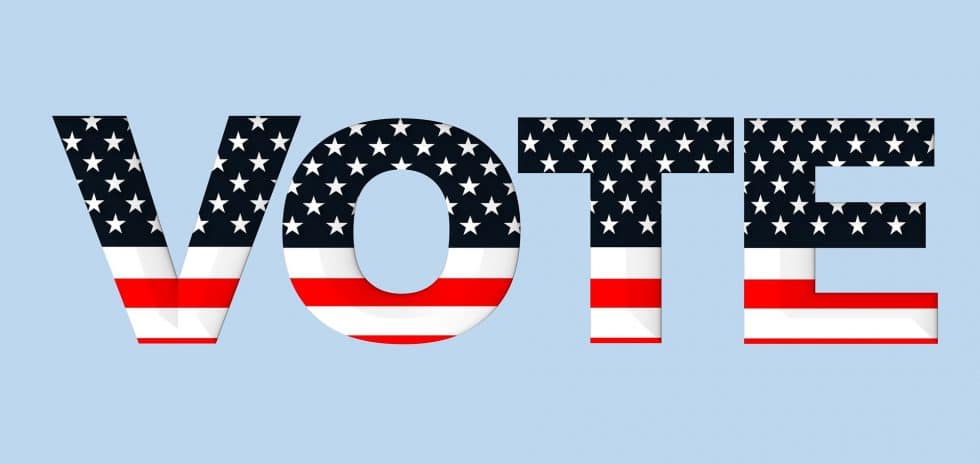
Voter Education is the Way Out of America’s Voting Rights Mess, and with the recent defeat of the excellent voting rights legislative proposals in the Senate, I can understand how some citizens can become discouraged at this juncture. However, we must look to the inspiring words of Dr. Martin Luther King for guidance, “We must accept finite disappointment, but never lose infinite hope”.
Our hope lies in our own actions given the status of voter suppression (denying one’s right to vote with discriminatory impact) and election subversion (using the levers of power in the administration of elections in a partisan manner to overturn legitimate election results) in many states.
While lawyers and legislators fight the good fight in courts, state legislatures and Congress, every citizen can do her/his part to keep elections free and fair through the voter education offered in votingforbeginners.com. Know the rules. Know the changes in voting laws. Know how to register and have your vote counted. Share it with your family and friends. When voters are educated I am confident they will vote to be represented by politicians that will ensure voter suppression and election subversion have no place in our democracy.
TOP 3 TIPS FOR VOTERS THAT GO WITH VOTING EDUCATION:
- Check your State/County voting rules EARLY.
- Register to vote EARLY.
- Vote EARLY.
“Yes, Virginia, There is a Santa Claus” – Season’s Greetings from Richard Bell

We all know what a difficult and challenging year 2021 has been for us all in so many ways. I wanted my holiday blog post to reflect hope, optimism and the triumph of the human spirit to launch us into the holiday season and throughout 2022.
There is no better way to capture the essence of the true meaning of the holiday season than through this immortal letter to the editor of the New York Sun and its response editorial on September 21, 1897:
“DEAR EDITOR: I am 8 years old.
Some of my little friends say there is no Santa Claus.
Papa says, ‘If you see it in THE SUN it’s so.’
Please tell me the truth; is there a Santa Claus?
VIRGINIA O’HANLON.
115 WEST NINETY-FIFTH STREET.
VIRGINIA, your little friends are wrong. They have been affected by the skepticism of a skeptical age. They do not believe except they see. They think that nothing can be which is not comprehensible by their little minds. All minds, Virginia, whether they be men’s or children’s, are little. In this great universe of ours man is a mere insect, an ant, in his intellect, as compared with the boundless world about him, as measured by the intelligence capable of grasping the whole of truth and knowledge.
Yes, VIRGINIA, there is a Santa Claus. He exists as certainly as love and generosity and devotion exist, and you know that they abound and give to your life its highest beauty and joy. Alas! how dreary would be the world if there were no Santa Claus. It would be as dreary as if there were no VIRGINIAS. There would be no childlike faith then, no poetry, no romance to make tolerable this existence. We should have no enjoyment, except in sense and sight. The eternal light with which childhood fills the world would be extinguished.
Not believe in Santa Claus! You might as well not believe in fairies! You might get your papa to hire men to watch in all the chimneys on Christmas Eve to catch Santa Claus, but even if they did not see Santa Claus coming down, what would that prove? Nobody sees Santa Claus, but that is no sign that there is no Santa Claus. The most real things in the world are those that neither children nor men can see. Did you ever see fairies dancing on the lawn? Of course not, but that’s no proof that they are not there. Nobody can conceive or imagine all the wonders there are unseen and unseeable in the world.
You may tear apart the baby’s rattle and see what makes the noise inside, but there is a veil covering the unseen world which not the strongest man, nor even the united strength of all the strongest men that ever lived, could tear apart. Only faith, fancy, poetry, love, romance, can push aside that curtain and view and picture the supernal beauty and glory beyond. Is it all real? Ah, VIRGINIA, in all this world there is nothing else real and abiding.
No Santa Claus! Thank God! he lives, and he lives forever. A thousand years from now, Virginia, nay, ten times ten thousand years from now, he will continue to make glad the heart of childhood.”
Season’s greetings and may you have a healthy, happy, and prosperous New Year. Stay safe. Be well.
Voter Suppression Laws In Certain States Are Unfortunately Alive And Well
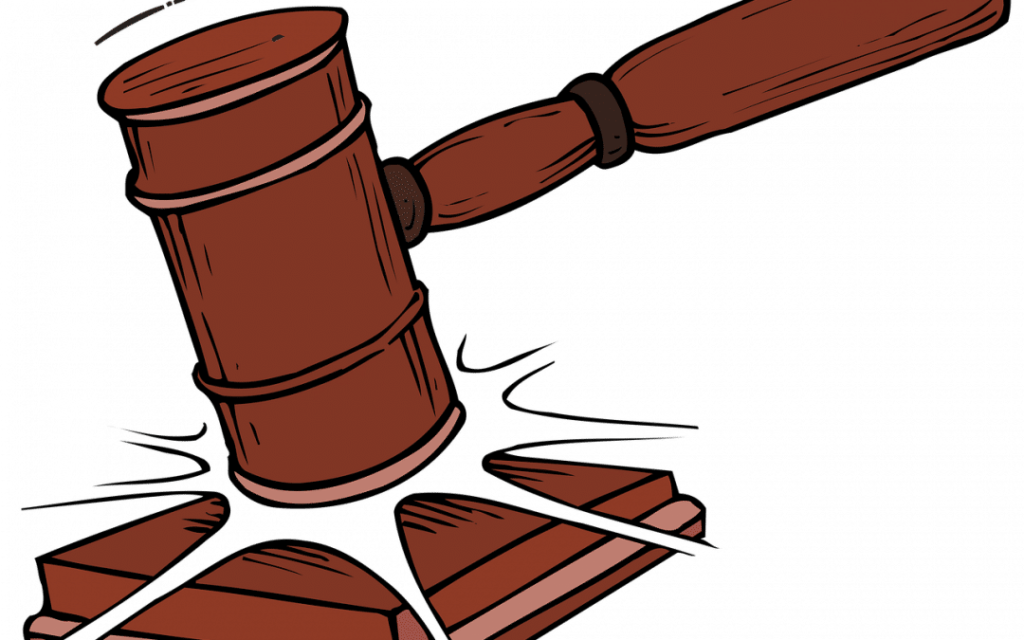
With all the critical events in the news these days, we sometimes lose sight of the fact that the war on voting rights is under attack in various states almost daily.
Without federal legislation (The Freedom to Vote Act and the John Lewis Voting Rights Advancement Act, both of which will require a carve out of the Senate filibuster rule to become law), states are creating barriers to voters without scrutiny by the media and voting public.
An excellent way to follow the new voter suppression laws in various states is to read the monthly column “Voting Laws Roundup” published online by the esteemed Brennan Center for Justice in New York. The October 2021 Voting Laws Roundup reveals that “19 states have enacted 33 laws that will make it harder for Americans to vote” and is an excellent overview of the status of voting laws in America. I highly recommend that you check it out monthly.
It’s your democracy. Stay informed.
In Support of the Freedom to Vote Act
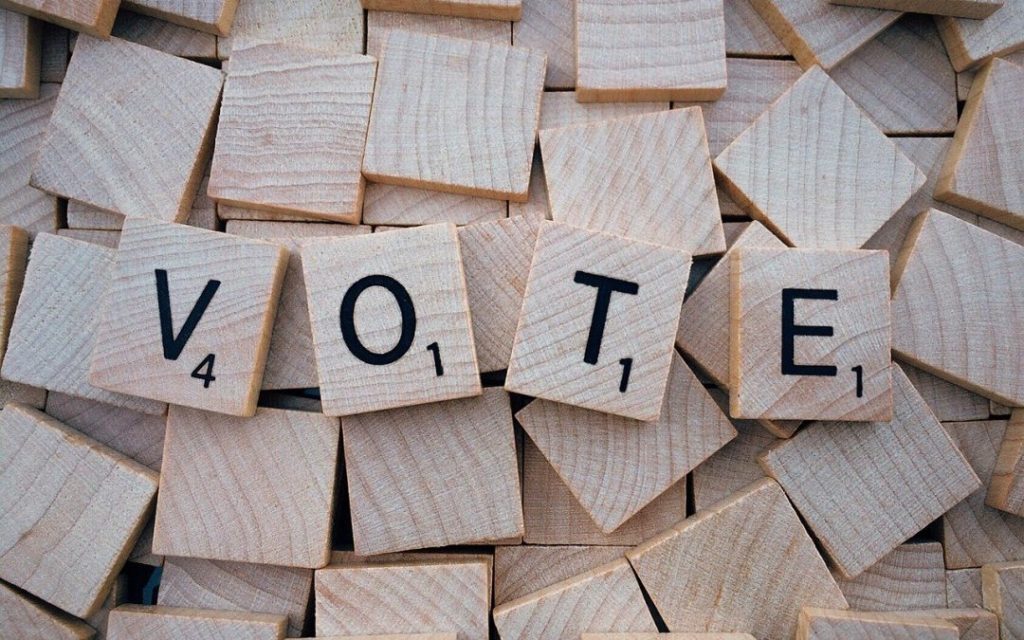
You may have read that the Freedom to Vote Act, national legislation to combat voter suppression (placing barriers to voting which often discriminate against certain groups such as African-Americans, Latinos, Native Americans, young voters and disabled voters) and electoral subversion (laws that intend to overturn election results by empowering partisan politicians over professional and competent election administrators in counting votes and certifying results) was prevented from being passed by Republicans in the senate. Unfortunately, due to the senate filibuster rules there is no chance it will pass the senate without a reform or carve out of the filibuster rules.
An excellent analysis of the Freedom to Vote Act is contained in a recent online article by the Center for American Progress. It clearly explains how this law “would counteract state laws that undermine elections”. It is a great read and an important educational tool for voters who believe in free, fair and easy elections for all.
After you read it, you may want to contact your senator to voice your support for the bill. Our democracy depends on it.
Before you contact your senator be sure to review the John Lewis Voting Rights Advancement Act if you agree that potential voter suppression laws should be pre-cleared by the Attorney General of the United States or the U.S. District Court in D.C. Then you need to call or email your senator to support this additional important piece of legislation that honors American voting rights and civil rights hero John Lewis. Your senator works for you. Tell her/him your opinions. NOW.
A Storied Newspaper Takes a Stand Against The Big Lie
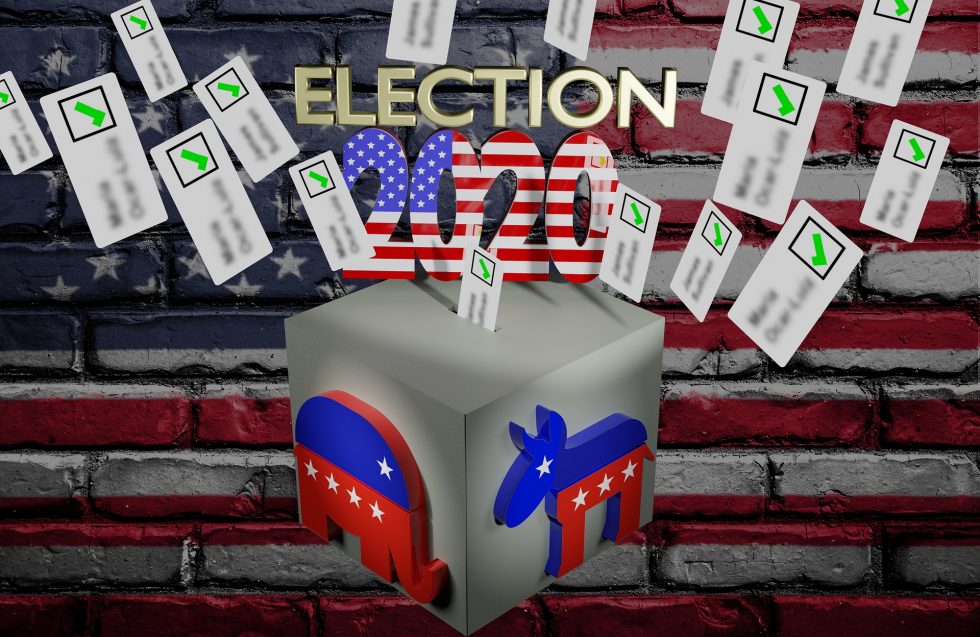
A Storied Newspaper Takes a Stand Against The Big Lie: This past week the latest attempt to perpetuate “The Big Lie”, a/k/a Trump’s completely baseless and thoroughly debunked theory that he really won the election, came to an embarrassing end. Not only was the Arizona so-called “audit” of the Maricopa County 2020 election vote count an inept circus run by unqualified amateurs (The literal name of the firm in charge was Cyber Ninjas), by it own admission President Biden won the county by even a few hundred more votes than the official certified tally. That, of course, is not stopping the Trump sycophant legislators in Pennsylvania, Texas and Wisconsin from trying to move forward with wasting taxpayer’s money to conduct useless “fraudits” in their states to perpetuate “The Big Lie” and undermine the foundation of our democracy, the integrity of our elections and the peaceful transfer of power (See 1/6/21) and acceptance of certified election results. Evidence be damned in the view of these opponents of free and fair elections. One great American newspaper has taken a stand against giving credence to these opponents of Democracy. The Philadelphia Inquirer will not dignify the upcoming frivolous Pennsylvania “audit” with the name “audit” because words matter. A must-read piece about this act of honesty and journalistic courage by The Philadelphia Inquirer is in The Washington Post:
“Words matter. So these journalists refuse to call GOP election meddling an ‘audit.’” written by Margaret Sullivan was originally published by The Washington Post [Source: https://www.washingtonpost.com]: There’s a simple but powerful idea behind the Philadelphia Inquirer’s recent decision not to use the word “audit” when referring to an effort by the state GOP to investigate the 2020 election:
Words matter.
The words that a news organization chooses to tell a story make a difference. If a journalist calls something a “lie,” that’s a deliberate choice. So is “racially tinged.” Or “pro-life.” Or “torture.”
Such decisions carry weight. They have power.
Acknowledging this power and being transparent about those choices is exactly what the Inquirer did the other day when it embedded within a news story a bit of explanatory text, under the headline: “Why We’re Not Calling It an Audit.”
In clear language, the paper explained that it’s because “there’s no indication” that this effort, which follows months of demands from Donald Trump alleging baselessly that the election was rigged, “would follow the best practices or the common understanding of an audit among nonpartisan experts.”
How so? The Inquirer noted that when it asked how the review would work, how ballots and election equipment would be secured, who would be involved, and so on, the leaders of this effort did not explain.
The Inquirer stated some reporting-based facts linked to the paper’s previous stories about them: That Joe Biden won the state by more than 80,000 votes, that state and county audits affirmed that outcome, and that there is no evidence of any significant fraud.
“We think it is critical to speak plain truths about efforts to make it harder to vote and about efforts to sow doubts about the electoral process,” Dan Hirschhorn, senior politics editor at the Inquirer, told me. “These are not ‘he said/she said’ stories — there is clear, objective truth here.”
More plain truths from the Inquirer: In the story carrying this explainer box, the paper uses the term “forensic investigation” — which is what the GOP wants to call it — in quotation marks. A sub-headline makes it clear that this effort is “modeled off the months-long partisan review in Arizona,” widely regarded as irrevocably flawed and unnecessary to begin with, initiated by Republican lawmakers carrying water for Trump and placed in the hands of dubious private firms. (“Fraudit” may be a more accurate term.)
Hirschhorn said there wasn’t a lot of internal discussion at the Inquirer about the decision, in part because it all flowed from the work of the paper’s excellent voting-rights beat reporter, Jonathan Lai, which provided the factual basis for the statements.
But it also flows from a clear philosophy at the paper.
“We are pro-democracy,” he said. “We believe voting rights are fundamental and it should be easier, not harder, for people who are legally allowed to vote to do so,” within a safe and secure voting system.
He was careful to say that the language is “narrowly tailored” for these recent developments: “We’re not making general statements about the Pennsylvania Republican Party.”
The decision reminds me, in some ways, of the admirable moves by another Pennsylvania news organization, the public radio station WITF in Harrisburg. As I wrote this spring, the station took some unusual steps to remind listeners and readers of how state Republicans had tried to undermine the 2020 election results.
In late January, the station posted an explanatory story stating that they would be regularly reminding their audience, in day-to-day coverage, that some state legislators signed a letter urging Congress to vote against certifying the Pennsylvania election results, and that some members of Congress had voted against certifying the state’s election results for President Biden, despite no evidence to support their election-fraud claims.
These elected officials, WITF reminded its audience, either knowingly spread disinformation or flat-out lied in an effort to keep Trump in office. “This was an unprecedented assault on the fabric of American democracy,” the statement said.
When I learned over the weekend about what the Inquirer was doing, I couldn’t help but think about the deeply flawed media coverage that followed the Sept. 11, 2001, terrorist attacks.
The way mainstream journalists, under pressure to appear patriotic in the aftermath of the attacks, too often adopted the language of politicians and failed to muster enough skepticism in the reporting that led up to the American invasion of Iraq.
In subsequent years, the press used euphemisms like “enhanced interrogation techniques” when they should have said “torture.” Or they called suspected terrorists at Guantánamo Bay “detainees,” as if they were being sent to the principal’s office rather than serving what amounted to a prison term of many years.
Who gets to decide what language is used? Should it be advocates, like activists who oppose abortion and insist that they should be called “pro-life” even if they favor the death penalty? Should it be politicians like those in Arizona and Pennsylvania whose “forensic investigations” are motivated not by any democratic impulse but by a purely partisan agenda?
Or should news organizations employ clear thinking and plain language, intended to serve the public’s understanding and interests? That’s what the Inquirer has decided to do in this case.
There’s a word for that, too: Integrity.
The New Texas Voting Law: Voter Suppression on Steroids

Texas, in its race to the bottom to restrict voting rights, has enacted voter suppression laws that are an assault on Texas residents’ fundamental right to vote. An excellent article on the new Texas law was in The Washington Post and was aptly titled, “New Texas voting bill deepens growing disparities in how Americans can cast their ballots.”
I highly recommend reading the piece by Elise Viebeck for an informed understanding of how our democracy is under relentless attack state by state, day by day:
Red and blue states are increasingly moving in opposite directions on how millions of Americans can cast their ballots, exacerbating a growing divide as Republicans in states across the country — most recently Texas — impose new voting restrictions, while Democrats in others expand access.
The conflicting trends are widening the disparities in election policy in the wake of the 2020 election, with Republicans heeding former president Donald Trump’s calls to tighten rules and Democrats moving to make permanent many voting policies that helped turnout soar during the pandemic.
At least 18 states this year enacted 30 laws restricting access to voting, according to an analysis as of mid-July by the nonpartisan Brennan Center for Justice.
That includes 11 states — nine of which supported Trump in 2020 — that only imposed restrictions and seven other states that both restricted and expanded voting access. An additional 18 states — nearly all of which backed President Biden — enacted laws that solely expanded access, the analysis shows.
Roughly 55 million voters live in states that tightened election rules, while about 70 million live in states that made voting easier, according to a similar analysis last week by the nonpartisan Voting Rights Lab, which tracks developments in state election law. The report assumes that Gov. Greg Abbott (R) will sign Texas’s contentious voting bill into law, which he has promised to do.
“We’re seeing two different democracies developing in terms of access to the ballot,” said Liz Avore, the group’s vice president for law and policy, calling it a “fault line developing across the country.”
As of Sept. 1, 45 states had passed more than 220 election bills into law this year, according to data provided by the Voting Rights Lab — a cascade of new policies that is reshaping Americans’ options for casting ballots.
The next fight is brewing in Ohio, where Republican lawmakers have introduced two competing bills to change election practices in the state, which Trump won by eight points amid record-breaking turnout of 74 percent.
“We’ve had a very functional system of election administration,” said Common Cause Ohio Executive Director Catherine Turcer, adding, “It is genuinely surprising that after a successful election where more Ohio voters participated than ever before, that any legislator would think about making it harder to vote.”
Many changes around the country are being promoted by GOP lawmakers who cite Trump’s baseless claims that widespread voter fraud tainted the 2020 vote — or argue that lowering the risk of fraud is critical for restoring voters’ confidence in elections.
In many states, GOP officeholders have also rejected policies adopted last year to make voting safer during the coronavirus pandemic, claiming that the changes were illegitimate and could have allowed for illegal voting. There was no evidence of widespread fraud in the 2020 general election, which saw the highest voter turnout in more than a century.
The battle over new rules was hard-fought in Texas, where the legislature approved an omnibus voting restrictions bill on Aug. 31. Stalled for months by two Democratic walkouts, the measure adds new criminal penalties for people who break election rules, gives partisan poll watchers more freedom, and bans drive-through and 24-hour voting, both of which were popular in heavily Democratic Harris County in November.
Those measures helped Texas reach 66 percent voter turnout in 2020 — the highest in nearly 30 years. State election officials told the legislature that there were no significant incidents of voter fraud.
But Republican sponsors of the new bill insisted that the risk is real.
“Anyone who tells you there’s no voter fraud in Texas is telling you a very big lie. We know it happens,” said state Sen. Bryan Hughes (R), the bill’s author, making his final argument before the vote. “The right to vote is too precious — it costs too much for us to leave it unprotected and unsecured.”
A total of 41 state laws enacted this year decreased voter access, while 102 increased access, according to the Voting Rights Lab. Twenty-six were neutral, and 53 were mixed or unclear in their effects.
More than 2,600 election-related bills were introduced overall. [Here’s where GOP lawmakers have passed new voting restrictions around the country]
Among the changes:
● Arizona now requires voters who do not cast a ballot at least once every two years to respond to a government notice to remain on the state’s popular Permanent Early Voting List, which determines who receives mail ballots. Another new law strips power from Democratic Secretary of State Katie Hobbs and provides money for post-election recounts.
● Florida now requires voters to renew mail-voting applications every two years and submit a form of identification as part of the process. The new law also gives partisan election observers more access to the ballot-counting process and dramatically curtails the use of drop boxes.
● Georgia now prohibits the unsolicited mailing of absentee-ballot applications and requires voters to submit identification for their request to be approved. The new law also strips certain powers from the secretary of state, adds restrictions on the use of ballot drop boxes, and prohibits providing food or drink to people waiting in line to vote.
● Iowa shortened the application period for mail ballots and barred election officials from proactively sending application forms to voters. It also shortened the early-voting period and voting hours on Election Day.
Jason Snead, executive director of the conservative group Honest Elections Project, said that 2021 has been a “good year for election integrity reform” — one of the right’s preferred terms for tighter voting rules. He argued that the Republican push was not just a reaction to 2020.
“What is actually getting done in a number of respects is advancing policy positions that I’ve been talking about since before Trump was a candidate for office,” said Snead, a former Heritage Foundation official whose group has filed court briefs in favor of Republican voting laws. “I’m very pleased with the way things have shaken out.”
Eliza Sweren-Becker, voting rights and elections counsel at the Brennan Center for Justice, said the number of voting restrictions enacted this year far exceeds that in 2011, the last year Republicans made a similar concerted effort to pass new election rules around the country.
“This is, certainly in recent memory, the most aggressive effort nationwide by states to make it harder to vote,” Sweren-Becker said.
One of the proposed measures to tighten the rules in Ohio is supported by Secretary of State Frank LaRose, a Republican who called November’s vote “the most successful election we’ve ever had.”
The measure would move up the deadline for requesting mail ballots, limit the number and location of ballot drop boxes, and eliminate early voting on the Monday before Election Day. It would also create an online process for requesting mail ballots and modernize the state’s voter registration and verification system.
A second bill introduced last month would impose more significant restrictions, including ending no-excuse absentee voting, dramatically reducing early in-person voting, prohibiting the secretary of state from sending unsolicited applications for mail ballots and tossing ballots returned by drop box.
Republicans who support the second bill said the measure backed by LaRose is not strict enough. At least one, state Rep. Scott Wiggam, has suggested that Ohio should consider a “forensic audit” of last year’s results.
“The fact of the matter is I think that he and the rest of Ohio could agree that we should ought to be always looking at the integrity of our election, and we shouldn’t be afraid of doing that,” Wiggam said, according to the Statehouse News Bureau. [In latest bow to Trump, GOP lawmakers in Pennsylvania plan to launch hearings on 2020 vote]
Both parties are also tracking the action in other states. In Michigan, conservative activists want to impose a strict photo ID requirement using the state’s citizen initiative process. A similar effort is underway in Arizona for early and mail ballots. And lawmakers in Pennsylvania are expected to consider another omnibus elections bill after Gov. Tom Wolf (D) vetoed new restrictions pushed by Republicans.
Some states could also see changes pass in this fall’s elections; New York, for example, will have same-day registration and no-excuse absentee voting on the ballot.
Voting rights advocates say they are encouraged to see states — red and blue — expand early in-person voting, offer voters “cure” processes to fix errors on mail ballots and widen voting eligibility for people with past felony convictions.
But in many Republican-controlled states, mail voting has been curtailed, despite being widely embraced by voters during the pandemic. Thirteen states decreased access to mail ballots this year, while 27 expanded or improved access, according to the Voting Rights Lab.
An additional nine states weakened the authority of state and local election officials. Five limited state or local officials’ power to modify election rules in an emergency. And five enacted laws threatening administrators with felony-level crimes or other penalties for breaking rules.
“Rather than protecting them, which is what we should be doing, these bills threaten them with really serious criminal penalties and are likely to result in increasing the exodus of election administrators that we’re seeing across the country,” Avore said.
Politically motivated investigations of election results could be another rising trend, she said, noting that the Texas Senate recently passed a bill allowing party officials to request reviews of election results. Proponents argue that omnibus bills passed in states including Florida, Georgia and Texas will bolster voters’ confidence in elections, even as opponents say they will make it harder for voters of color to cast ballots. Texas House Democrats tangled with Speaker Dade Phelan (R) during a recent floor debate over S.B.1, balking at his request that they refrain from using the terms “racism” and “racist” in reference to the bill. At one point in the Senate debate, Democrats highlighted the fact that Hughes had not studied the bill’s potential impact on minority voters.
“I just don’t really think these [provisions] are going to have the suppressive effect that opponents think that they will,” Snead said, pointing to Democrats’ criticism of part of the bill that would require Texans to provide one of a range of forms of identification to apply for mail ballots or attest to the fact they did not have one. “If you set aside the politics of the moment, the average American wants to trust the election process,” he said.
Turcer, of Common Cause Ohio, said voters’ confidence would grow if they understood the election rules already in place. “The distrust of election officials and election administration has run really deep, and we need to do a good job of educating people about how elections work and what kind of security measures we have,” she said. “We shouldn’t assume that wrong things are being done. We should all go into it asking good questions but waiting to understand how it actually works.”
Eva Ruth Moravec in Austin contributed to this report.
The U.S. Supreme Court Continues to Enable Voter Suppression
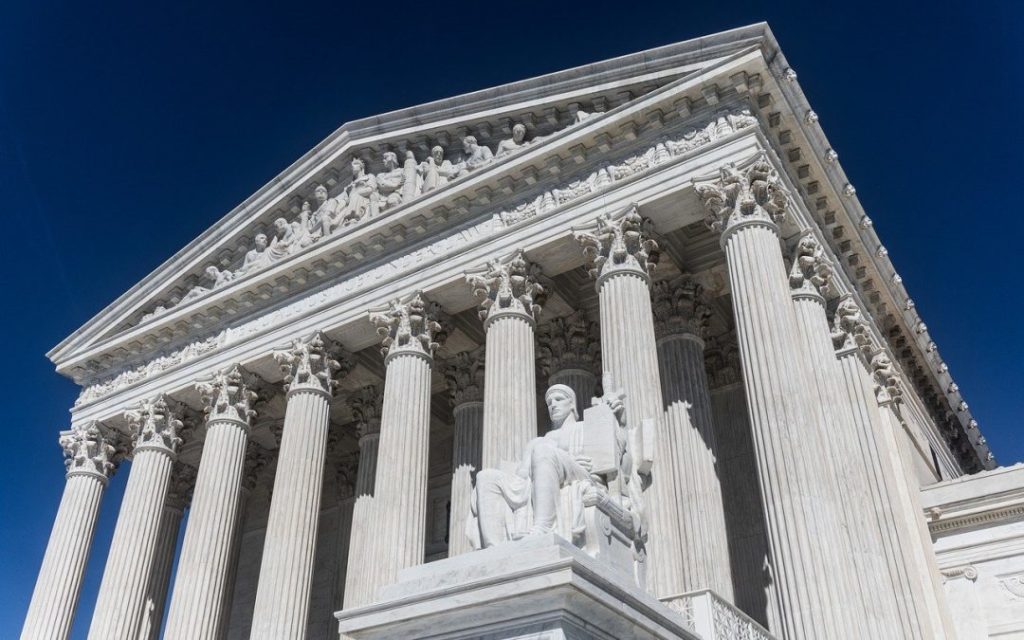
With all of the voter suppression laws being passed in state legislatures in 2021, one would think the U.S. Supreme Court would be the institution to thwart voter suppression when challenges to restrictive voting laws reach the high court. Think again.
The Roberts Court had the chance this past term to declare unconstitutional two Arizona laws enacted in 2015 which clearly violated Section 5 of the Voting Rights Act of 1965 (as amended in 1982). The Arizona laws, which resulted in refusal to count ballots of duly registered voters cast in the wrong precinct and ballots of registered voters collected and delivered together, had a discriminatory impact on African-Americans, Latinos and Native Americans. The 6-3 majority basically was not interested in that discriminatory impact and upheld these laws that were clearly aimed at voter suppression of these three groups of American citizens who should be the recipients of constitutional protection under the Voting Rights Act.
In her dissenting opinion, Justice Elena Kagan reminded us that the whole point of the Voting Rights Act is to forever abolish the voting laws enacted in certain states before 1965 which resulted “in unequal opportunities for minority voters”. Her words did not persuade the voter suppression enablers in the Court’s majority despite her direct attack on the integrity of the majority’s opinion as creating “mostly made up factors at odds with §2”. That is scathing language for a Supreme Court Justice to aim at her peers. She was so right in her harsh, but honest approach to a majority opinion undermining our democracy. The Roberts Court is unfortunately following its tradition of eviscerating the Voting Rights Act which it began in 2013 when it abolished pre-clearance of discriminatory voting laws in regulated states in Shelby County v. Holder.
You can hear a more in depth discussion of this Supreme Court opinion by listening to my interview on The Laura Coates Show (Part 1 and Part 2).
This website contains “Attorney Advertising.” It is designed for general information only and should not be construed to be formal legal advice. Prior results cannot and do not guarantee a similar outcome. Please contact us by telephone or email. Be advised that using any method of communication to contact us does not create an attorney – client relationship. In order for this office to represent you, we must enter into a written retainer agreement. Simply contacting us does not create an attorney-client relationship. Please do not send any confidential information to this office until after a signed retainer has been entered into by you and this office.

